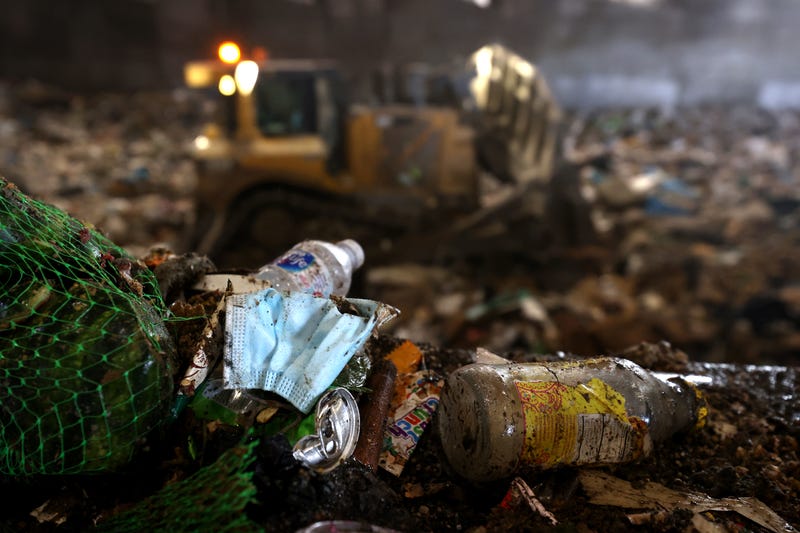The UN has started a series of negotiations for a legally binding treaty to end plastic pollution
We may earn a commission from links on this page.

The world is choking in plastic trash, and the UN wants to do something to fix it.
Recent Video
This browser does not support the video element.
Related Stories
A weeklong meeting of the Intergovernmental Negotiating Committee (INC) on Plastic Pollution in Punta del Este, Uruguay, ended last Friday (Dec. 2). It was a first, formal step towards a legally binding international treaty to deal with the global plastics problem. Such a pact would be the most consequential environmental treaty in years, on par with 2015’s Paris Agreement on climate change.
The INC will spend the next two years negotiating how binding the regulations will be. While most of the 1,800 attendees in Uruguay ostensibly support ending plastic pollution as a baseline, competing motives have factions pulling in different directions. Hardline countries and campaigners are pushing for outright bans on “problem plastics” and certain chemicals, as well as internationally set regulations and strict production monitoring.
G/O Media may get a commission

Up to 35% off
Tile Item Trackers
Bluetooth-enabled
Tile has a number of trackers on sale which use Bluetooth to pinpoint their exact whereabouts. They’re great for keys and wallets, but also luggage tags and more.
Advertisement
Plastics industry coalitions—which include the world’s largest plastic producers, like Nestlé and Unilever—are calling for a focus on recycling and global targets defined by national priorities.
How would an international plastics treaty work?
Details of the treaty will have to be negotiated over the next couple of years. The High Ambition Coalition to End Plastic Pollution, made up of 45 countries, is calling to restrict the single-use plastics found in packaging and consumer goods. They make up half of the plastic waste produced today, so a restriction would hugely reduce pollution, as well as force a transformation for consumers—and the companies producing their goods—in the way they drink bottled water, order takeout, or buy cleaning products and cosmetics.
Advertisement
An international standard for monitoring production would also try to ensure that plastics are chemically safe, genuinely recyclable, and durable enough to be reusable. Of the roughly 10,000 chemicals used in producing plastics, more than 2,400 have been found to be harmful, causing a range of health problems from asthma to infertility. Recycling is not currently viable for most plastics, but better production monitoring could shift that.
Until now, recycling has been criticized for having little impact on the volume of plastic pollution. Only 5% of plastics in the US were recycled in 2021, down from 9.5% in 2014. And leaving countries to define their national priorities can be murky. In the US, some trade groups, which include oil giants such as Chevron and ExxonMobil, stand to benefit from the continued use of their fossil fuels to manufacture plastic. They’ve spent millions lobbying against government action on plastic pollution, which could translate into weaker national regulations in the global effort against plastic.
Advertisement
So far, the US, Saudi Arabia, and the plastics industry are backing the model used for the Paris climate agreement, which leaves countries to determine their own national action plans, rather than being bound by common regulations.
For campaigners, the specter of the Paris climate agreement is less a benchmark model for international treaties, and more a cautionary tale. The Paris Agreement is based on countries developing their own national policies for avoiding 2 degrees Celsius of warming above pre-industrial levels, and preferably avoiding 1.5 degrees. The world has missed this target. Current national policies would result in a 2.8-degree temperature rise by the end of the century. Implementation of the most recent pledges would nudge that down only by 0.2-0.4 degrees.
Advertisement
“We haven’t really seen much success coming out of the Paris Agreement,” Chris Dixon, ocean campaign leader at the Environmental Investigation Agency, a London-based NGO, told Bloomberg. “So why on earth would we be trying to negotiate a new convention which is modeled on something that’s essentially been a failure?”
Advertisement
